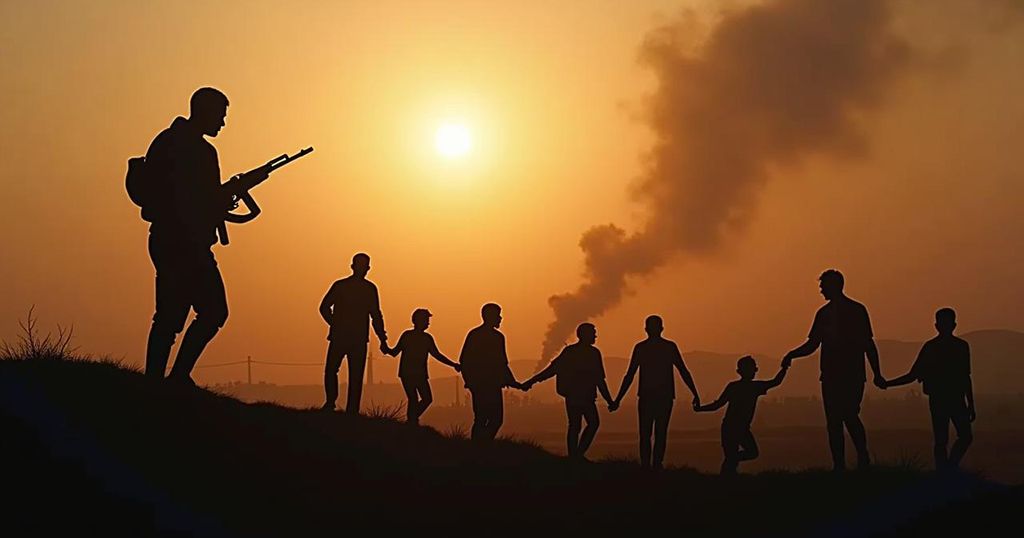The UNHCR reports that over 100,000 people have fled from Lebanon to Syria due to Israeli bombardment targeting Hezbollah. The intensified military actions have resulted in significant fatalities, and the Lebanese population is experiencing unprecedented displacement as a result. Caretaker Prime Minister Najib Mikati stated that airstrikes may have displaced one million people, raising concerns over the humanitarian situation.
The ongoing Israeli bombardment of Lebanon has resulted in a significant humanitarian crisis, forcing over 100,000 individuals to flee into the already war-torn Syria, as reported by the United Nations Refugee Agency (UNHCR). Filippo Grandi, the agency’s chief, highlighted the alarming number of refugees crossing the border, stating, “The number of people who have crossed into Syria from Lebanon fleeing Israeli airstrikes – Lebanese and Syrian nationals – has reached 100,000. The outflow continues.” The UN has mobilized efforts at four key crossing points to assist those escaping the violence. The recent escalation of hostilities follows Israel’s intensified military operations against Hezbollah, a militant group based in Lebanon, amid its broader conflict with Hamas in Gaza. Reports indicate that the bombardment in Lebanon has resulted in over 700 fatalities within a single week. The tragic situation is exacerbated by the fact that Lebanon is already home to approximately 1.5 million Syrian refugees who fled the decade-long war in their country since 2011. The Israeli military action aims to re-establish security in northern Israel, ultimately facilitating the return of Israeli citizens to their homes. However, this military strategy entails significant operations against Hezbollah, which have raised concerns regarding further displacements. The caretaker Prime Minister of Lebanon, Najib Mikati, has indicated that the airstrikes may have displaced up to one million individuals, leading to one of the most dire humanitarian crises in Lebanon’s history. Additionally, the International Organization for Migration reports having tracked 200,000 of these displaced persons to date. As the violent conflict continues to evolve and the potential for a ground assault looms, humanitarian agencies face mounting challenges in providing essential support to those caught in this cycle of violence and displacement.
The Israeli bombardment of Lebanon and the subsequent refugee crisis have arisen from escalating military actions involving Israeli forces and Hezbollah since the onset of renewed hostilities in October during the ongoing conflict with Hamas in Gaza. Historically, prior to this escalation, Lebanon had already been deeply affected by the Syrian civil war, resulting in a large influx of refugees. With the renewed violence, the humanitarian situation has been described as dire, prompting urgent responses from international organizations like the UNHCR and the International Organization for Migration.
In summary, the current situation in Lebanon showcases a severe humanitarian crisis as a consequence of the Israeli military operations against Hezbollah, resulting in a mass exodus of over 100,000 people fleeing into Syria. This scenario underscores the pressing need for international humanitarian assistance to support displaced individuals and address the widening ramifications of this ongoing conflict.
Original Source: www.aljazeera.com







